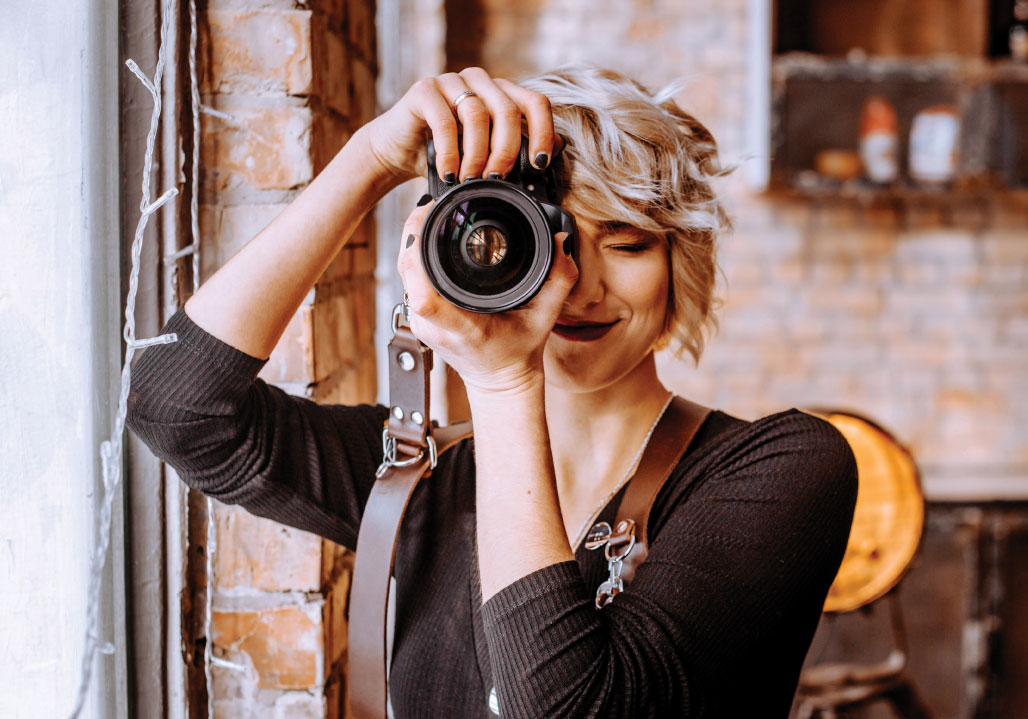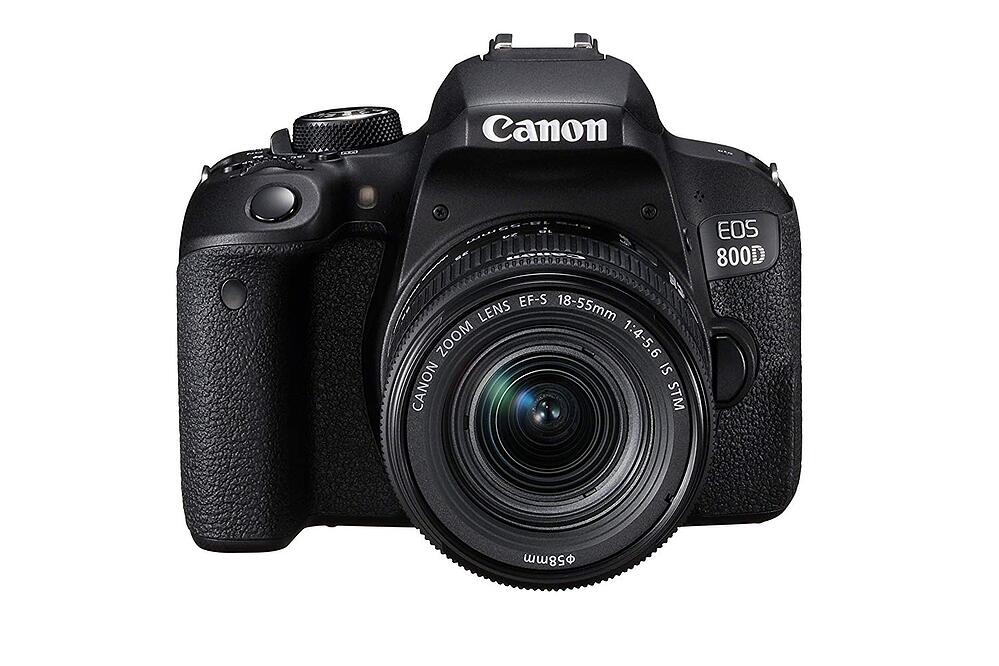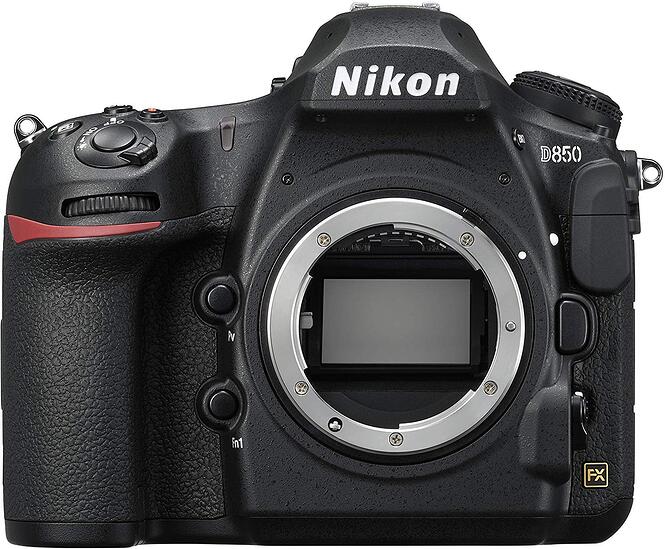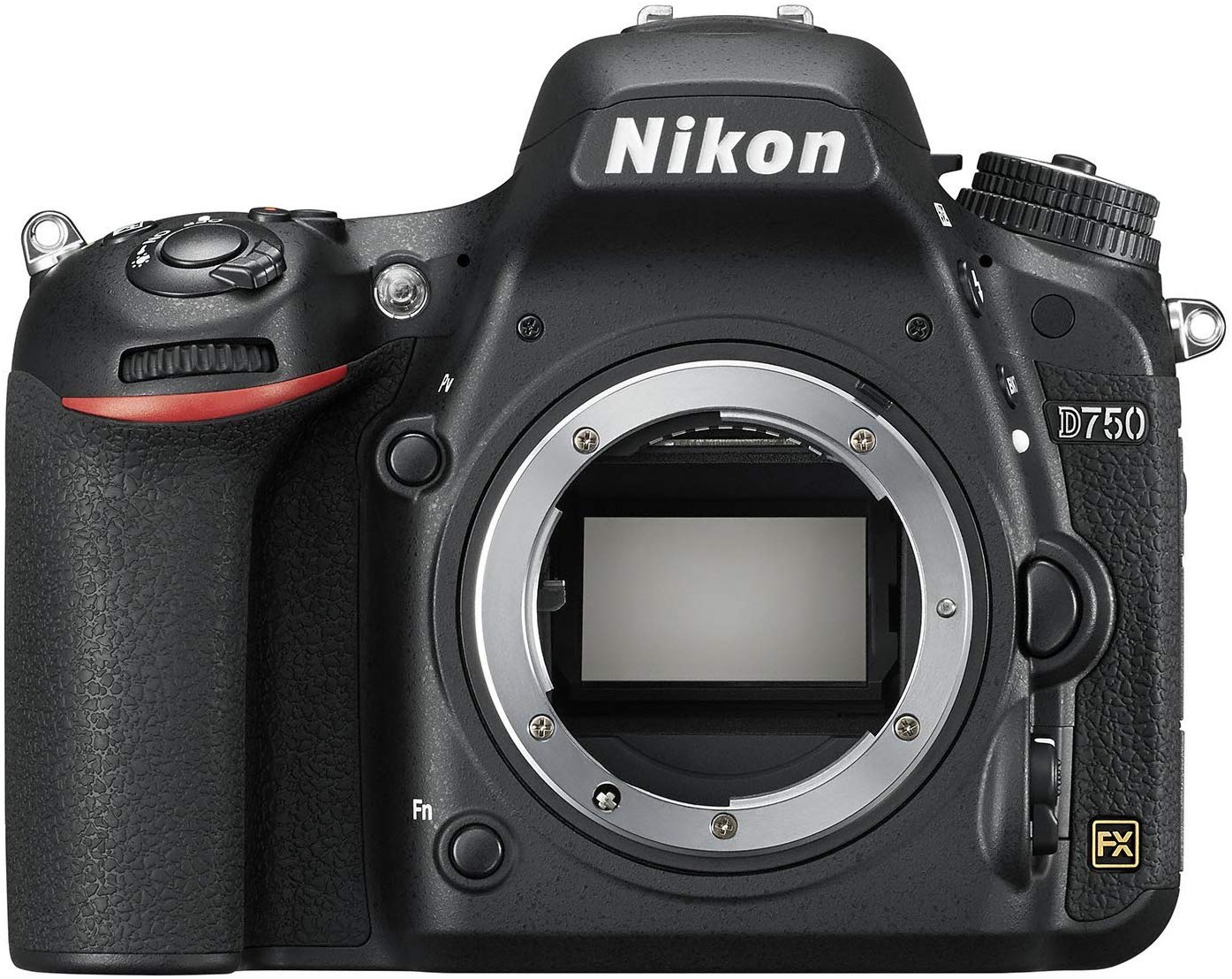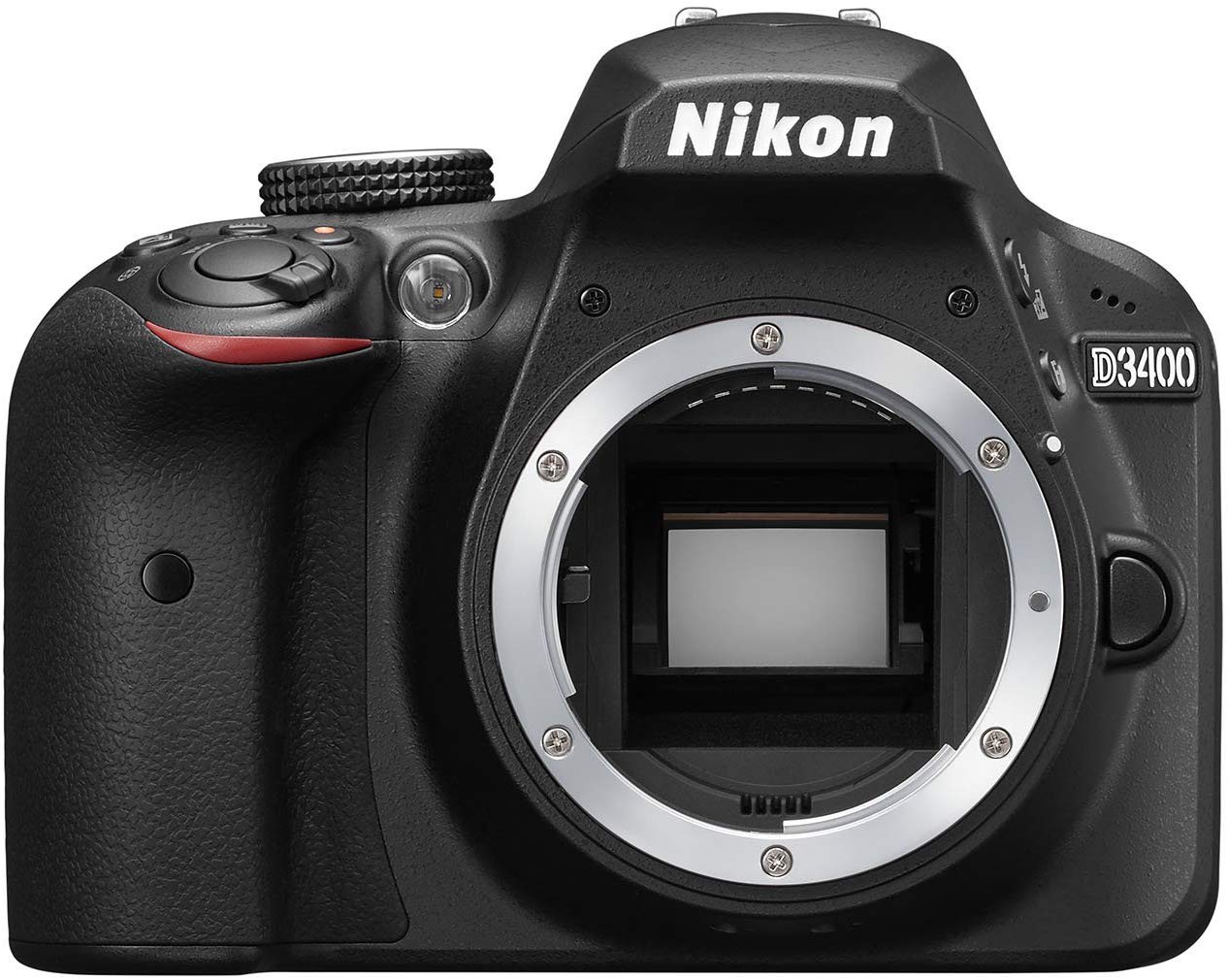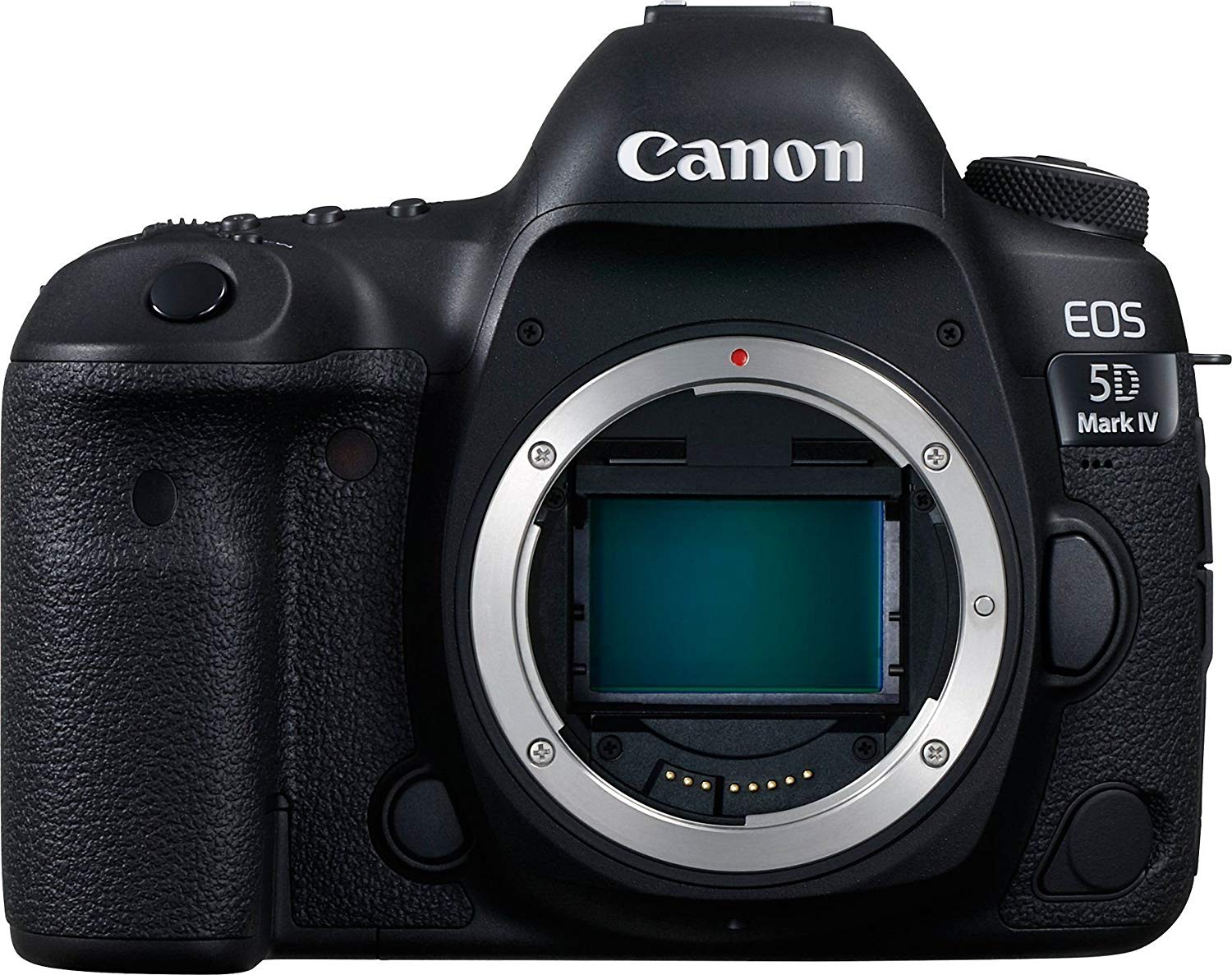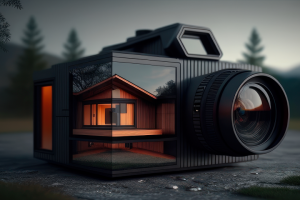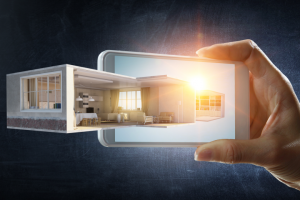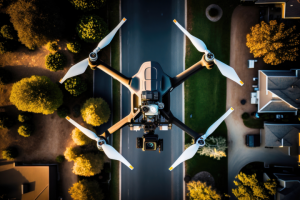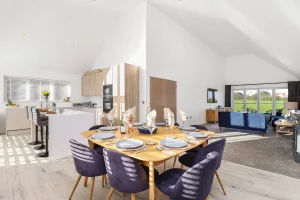Your property photos are the most important part of your property marketing. Not only does high quality photography help you to attract vendors and win new instructions, it is also vital in attracting the interest of potential buyers.
Having the right equipment for taking your real estate photography is obviously key. To get great photos that convert, you need to be using the best lens for property photography alongside a great camera.
You can get our complete breakdown on what kit you need to take great property photography alongside all of our other tips and tricks in our ultimate property photography blog here.
What Types of Camera Can You Use?
There are 4 types of camera an estate agent is likely to use for taking real estate photos – but they are not all equal in their performance:
- Camera Phone
- Compact Cameras
- Mirrorless Cameras
- DSLR Cameras
Don’t forget you can download our free Property Photography Jargon Buster if any terms come up that you want to check!
The Camera Phone
This is a NO for estate agents who want to impress. Not only will your vendors be totally underwhelmed and disappointed at your turning up to take photos on your phone but the quality of images you will produce just won’t be high enough for attracting buyers.
The Compact Camera
The compact camera is an easy to use camera that you can essentially “point and shoot”. The problem with the compact camera where property images are concerned is that:
- You can’t interchange the lenses on them.
- They have small sensors which means they don’t capture the high quality images you need.
A compact camera also lacks the professional look that impresses vendors.
The Mirrorless Camera
These cameras differ from DSLR cameras because they don’t have an internal mirror that reflects the light and enables you to see the image you’re about to shoot through the viewfinder.
Mirrorless cameras are lightweight but tend to have inferior battery life than DSLRs, less lens attachment options and can often have smaller sensors which reduce their image quality, especially in low light.
On the whole though, mirrorless cameras can actually perform well and produce great property images.
The DSLR
A DSLR camera is the best type of camera for estate agent photography. Whilst mirrorless cameras are catching up, today the DSLR offers the highest quality of image, the best options for lens attachments and the most professional look.
What Are The Basic Requirements Of Your Estate Agent Photography Camera?
A great camera for property photography needs to have features that enable you to take high quality photos in good and low light conditions. If you are not a professional or experienced in using a DSLR, it will also be easy to navigate the settings.
These are the features to look out for:
- A large sensor. DSLRs tend to have these.
- A good range of ISOs.
- Ability to attach a wide angle lens.
- Good battery life.
Top Picks For Your Camera
1. Canon EOS 800D
This is our top recommendation. This DSLR is well priced (£519) and is easy to navigate if you are not a professional real estate photographer.
This Canon camera body is also lightweight and relatively small in size which makes it great for carrying between the office and all of your properties. Another great plus – it’s unlikely to die on you mid-shoot as it can take up to 600 photos on a full battery.
Most importantly though, the Canon EOS 800D has a high resolution and a good range of ISOs which means that you’ll be able to take high quality images even in low light.
Our top picks for wide angle lenses will also work with this camera.
To find out more about the best techniques for taking great exterior and interior real estate photos, click here.
The Nikon D850 is a beast of a camera. It has a super high resolution and great sensor which means it will capture a really high quality of image. A wide range of ISOs also mean it will perform well in low light conditions which is particularly helpful for interior photography.
This camera is what’s known as Full Frame. This refers to the sensor and essentially means that it can capture a wider view of what you’re taking a photo of. Again, this is a great feature for interior photos.
The superior features of the Nikon do come with a much higher price at £2519!
This is a great option for estate agents as it’s lightweight and reasonably priced at around £999.
The D750 has a good resolution and a very good ISO range which means it can capture great photos even in low light. This camera is also full frame which, like the Nikon D850, means it has a wider angle of view so will capture more of the space you’re photography.
Whilst being full frame is great for real estate photos, it does mean this camera is more expensive than our top pick and other cropped sensor cameras.
4. Nikon D3400 DSLR Camera – £299
This is the cheapest camera in our list and is what’s described as a “Beginner DSLR”. The D3400 still features a good resolution and also has a great battery life, taking up to 1500 shots on a full battery.
Whilst this option will take decent property photos, it’s slower shutter speed means it will not handle low light conditions as well as the other cameras in this list.
5. Canon 5D Mark IV – £2590
The Canon 5D Mark III is a full frame camera that produces extremely high quality, professional standard images.
As a full frame camera, it has a larger sensor which means it can handle low light conditions well but does weigh more than the cropped sensor cameras in this list.
Another great feature of the Mark III is something called Autobracketing. This is an advanced technique to capture great shots in darker conditions which can be extremely useful for interior property photos.
How much do they cost?
| Lens | Cost (£) | Sensor | Weight |
| Canon EOS 800D | £545 | Cropped | 530 grams |
| Nikon D850 | £2519 | Full Frame | 920 grams |
| Nikon D750 | £999 | Full Frame
|
408 grams |
| Nikon D3400 | £299 | Cropped | 394 grams |
| Canon 5D Mark IV | £2579 | Full Frame | 798 grams |
The camera is just one part of the Basic Estate Agent Photography Kit but it’s an important one.
Discover all the other pieces of kit you need and how to use them more effectively in our free ebook on Property Photography Mastery for Estate Agents.
